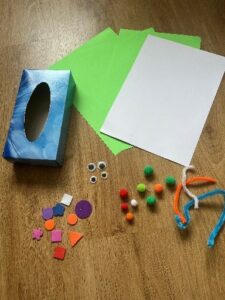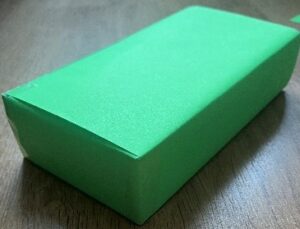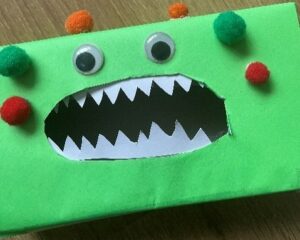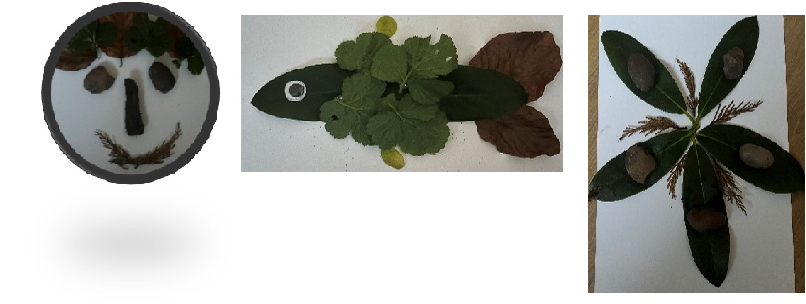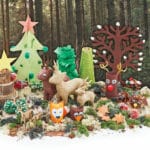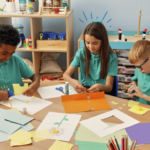Author: Lindsay Robinson
Lindsay Robinson has been a primary school teacher for 23 years and is passionate about achieving the very best outcomes for children through quality first teaching and experiences.
When I think back to my decision to become a primary school teacher and the aspirations that I had, I remember the most important hope that I had for the children placed in my care was that I could provide an environment where they felt safe, calm and happy. Of course, along the way, our focus as teachers can get pulled towards targets, levels, SATs, Ofsted; however, at the heart of what we do, are children. Good mental health allows children to develop, engage in learning and fulfil their potential. Those primary school years are formative years in any child’s life, so our influence on a child’s mental health and wellbeing is huge; if we can help to get that right, all the rest will follow.
Hope is part of the Findel Family of Brands and Findel are extremely proud to be a partner of Place2be* (a UK charity dedicated to supporting children’s mental health in school). Place2Be’s Children’s Mental Health Week 2025 will take place from 3-9 February 2025. This year, the theme is Know Yourself, Grow Yourself in partnership with Here4You, supported by The Walt Disney Company and the Inside Out 2 characters. It’s the perfect time to focus on the mental health and wellbeing of the children in your classroom; to help them explore the importance of self-awareness and expressing emotions; and to encourage children to discover how getting to know who they are can help them build resilience, grow and develop.

Here are five fun and simple activities that you can do during Children’s Mental Health Week to support children to develop strategies to support their own mental health that they can hopefully take forward in their future lives.
Monday – Knowing My Feelings
This simple craft activity is designed to help children to visualise that every feeling is normal and every feeling is welcome; we can acknowledge and articulate our feelings whether it be joy, sadness, anger or whatever we may be feeling; however, we don’t let any one feeling control our minds and bodies – we can give our brains a break from holding onto them.
My Feelings Box
What you need:
A tissue box
Coloured paper
Craft materials
Strips of paper to write or draw your feelings or worries.
How to make it:
1. Wrap your tissue box in any paper you like.
2. Decorate your box. The children could decorate it in any way they like so it’s a special place to hold their feelings or worries or they could even make it into a monster that gobbles up their worries when they place them inside.
3. Make sure you cut out around the hole in the top so there is a space to place the feelings or worries.
4. Write (or draw) your feelings or worries on the strips of paper and place them in the box. For example, ‘I feel sad when…’
This activity teaches children that our feelings are still there but we can give ourselves a break from them. Writing or drawing their feelings or worries also helps them to understand that it’s important to acknowledge and articulate our feelings and worries and that all feelings are valid; it’s how we deal with them that’s important.
Classmates Craft Pack
Tuesday – Knowing My Connections
Remind the children that yesterday we learnt that all feelings are ok. Today’s activity is about sharing our feelings with others. Connection with other people is really integral to good mental health so it’s important that children know that they can share their feelings with family, friends or other trusted adults rather than keeping them bottled up inside. Talk to the children about who they can share their feelings or worries with and ask them to write a list or draw pictures of who their connections might be. A lovely, yet simple activity to do in class is to pair the children up and ask them to sketch a portrait of each other. Around the portrait, ask the children to write three positive adjectives about their partner. This is a great way to form connections within your class and also boosts the children’s self-esteem. Giving positive affirmations to others – as well as accepting them from others – is also a really good way to improve our mental health.
Wednesday – Knowing My Body
Physical activity releases hormones that can reduce stress and anger. Being outdoors in nature also helps to increase those feel good endorphins so today’s activity combines both: after talking to your class about the benefits of physical activity and being outside in nature, take them outside around your school grounds. Play a couple of whole class games to get the heart pumping (I like Duck, Duck, Goose or The Bean Game) and get everyone moving. Talk about how it makes them feel. Then split the children into small groups and ask them to simply walk around together, noticing their surroundings and chatting about what they can see in nature. Ask them to collect natural objects to bring back to class: leaves, twigs, acorns, stones. Back in class, the children can make a collage using the natural objects, thinking about colours, patterns, sizes and texture.
Thursday – Knowing My Mind
Being able to calm our minds is a powerful strategy to teach. Strong emotions can sometimes feel overwhelming so breathing exercises and ways to slow our minds down can be really helpful.
Finger Breathing
This is a really simple activity that we can teach even the youngest children to do. Ask them to hold one hand out in front of them stretched out like a star. Using the pointer finger of the other hand,
My Mindful/Gratitude Jar
Ask the children to bring an empty jam jar or plastic bottle in from home. Simply add water and a scoop of glitter. When they feel upset, they can give the jar a shake and wait for the glitter to settle. Once the glitter has settled, their mind should feel calmer too. They could even think of the jar as a gratitude jar. Whilst waiting for the glitter to settle, ask them to think of things they are grateful for in their lives.
Classmates Glitter Assortment
Friday- Knowing my Wishes
A Happy List is a simple way to get the children thinking positive thoughts and building their awareness of things they can draw upon to help when they feel low. Talk to the children about things that are on your Happy List: maybe a bubble bath, telling someone a joke, dancing, colouring and then ask them to write or draw three things for their own Happy List.
Ask the children to think about happy memories that they have had. They can then add three happy memories to their list.
Finally, ask the children to think about their hopes, dreams and wishes for the future; what makes them excited? Ask them to add three wishes to their lists.
By adding these fun activities into our classrooms during Children’s Mental Health Week, we are giving children some really powerful tools to support good mental health: acceptance of feelings; the importance of connection; the link between physical health and mental health; how to stay calm; and the power of positive thinking. We are giving them the tools to know themselves and grow themselves!
Resources to support children’s mental health and wellbeing
* https://www.findel.co.uk/findel-announces-new-annual-charity-partnership-with-place2be/
Lindsay Robinson has been a primary school teacher for 23 years and is passionate about achieving the very best outcomes for children through quality first teaching and experiences. She strives to make her classroom a nurturing and caring environment. As an author for Hope Education, Lindsay enjoys drawing upon her own experiences in the classroom to support and encourage other teachers in their own classrooms.
All of the resources recommended can be found at hope-education.co.uk. Hope is rated Excellent on Trustpilot and offers Free Next Day Delivery. Hope has won many awards for the best service in the industry making Hope their customers’ Undisputed First Choice Education Resource Supplier. Part of the Findel family and home to EuHu – the Educator Hub created by teachers for teachers, Hope understands educators’ challenges and exists to make each day that little bit easier. For everything you could need each day, with value, service and quality you really want, Hope is all you need.
*Full Terms and Conditions and latest prices and promotions are available online too.

